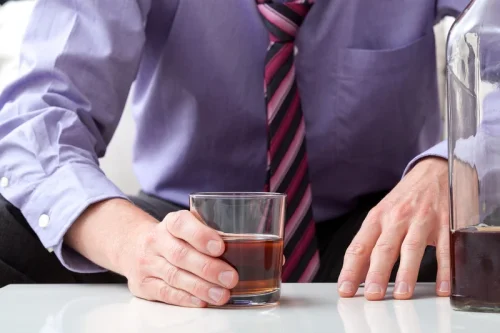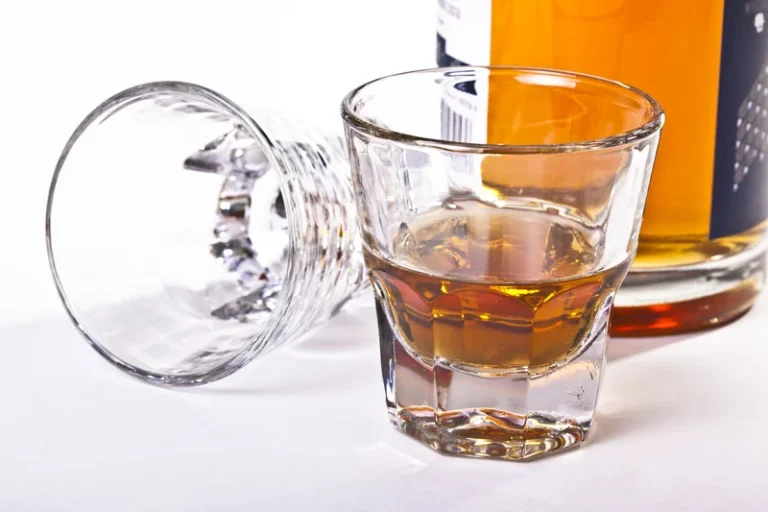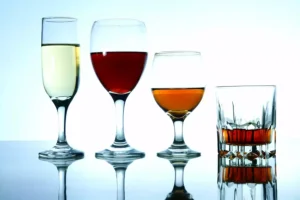Abstinence Violation Effect AVE

Despite the fact that relapse can be all-consuming, it does not have to be. It may be a single occurrence where someone decides to use the substance again. A single AVE instance can result in a long-term relapse for the individual. Knowing the different stages of relapse and how to avoid them is therefore crucial. Many people can relate to =https://ecosoberhouse.com/ this feeling of guilt when they use a substance, like alcohol or marijuana, after promising themselves they wouldn’t.
NEARBY TERMS
You may think that this time will be different, but if your drinking and drug use has gotten out of control in the past, it’s unlikely to be different this time. A period of successful recovery and abstinence is something to be celebrated. However, it can sometimes abstinence violation effect lead to the thought that you have earned a drink or a night of using drugs. It sounds counterintuitive, and it is, but it is a common thought that many people have to recognize to avoid relapse. Celebrating victories is a good thing, but it’s important to find constructive ways to appreciate your sobriety. Understanding the AVE is crucial for individuals in recovery and those focused on healthier lifestyle choices.
- A model of the relapse process is presented along with what is described as its central feature, the abstinence violation effect (AVE).
- Several issues can occur before a relapse occurs, including a mindset shift caused by triggers or stress.
- The negative emotional responses you are experiencing are related to stress, high-risk situations, or inborn anxieties.
- It’s important to note that a relapse doesn’t mean your recovery has failed.
- For Jim and Taylor, this might involve acknowledging the months of sobriety and healthier lifestyle choices and understanding that a single incident does not erase that progress.
What Does It Mean to Relapse?

A person’s guilt is a difficult emotion to carry, one that can constantly replay in their minds, causing them to use substances again to ease their guilt. Your brain may unconsciously crave drugs when you are feeling overwhelmed. The conscious thought may become that the only way you can cope with your current situation is by taking drugs or alcohol.
Emotional Relapse
- For people in recovery, a relapse can mean the return to a cycle of active addiction.
- The AVE was introduced into the substance abuse literature within the context of the “relapse process” (Marlatt & Gordon, 1985, p. 37).
- Taylor uses an app to watch her intake of calorie limit and does see positive outcomes to her new lifestyle.
- People in addiction recovery often experience drug cravings when they go through stress.
- Guilt is a difficult emotion for someone to bear, one that can constantly replay in their minds, leading them to use substances again.
- He was hoping that he could get back together with her, but realized that this was impossible.
For people in recovery, a relapse can mean the return to a cycle of active addiction. While relapse doesn’t Substance abuse mean you can’t achieve lasting sobriety, it can be a disheartening setback in your recovery. It can be a single instance where someone decides to use the substance again.
The negative emotional responses you are experiencing are related to stress, high-risk situations, or inborn anxieties. Because emotional relapses occur so deeply below the surface in your mind, they can be incredibly difficult to recognize. Quite frankly, studies that have attempted to look at lapse and relapse rates across different substances have discrepant findings because the terms are often defined differently. In addition, many individuals in recovery consider a single slip as a full-blown relapse. People in addiction recovery often experience drug cravings when they go through stress. Addiction rewires the brain to consider drug use an important source of reward.
- Marlatt considered the abstinence violation affect a serious risk factor for relapse that could be avoided by understanding the difference between a slip and a full-blown violation of one’s commitment to recovery.
- It is for this reason that someone’s tolerance declines following a period of abstinence and that they may overdose if they start using again at the same level as before.
- The AVE was introduced into the substance abuse literature within the context of the “relapse process” (Marlatt and Gordon 1985, p. 37).
It’s important to note that a relapse doesn’t mean your recovery has failed. Still, you should also realize that relapse isn’t guaranteed, especially if you stay vigilant in managing your continued recovery. A mindset shift caused by triggers or stress may lead you to take that drink or start using drugs again. A relapse can be caused by a cascading effect that includes several issues that occur before you begin using again, according to Marlatt. Several issues can occur before a relapse occurs, including a mindset shift caused by triggers or stress.

Abstinence Violation Effect & Relapse Prevention

When you are feeling overwhelmed, your brain may unconsciously crave drugs as a way to help you feel better. But you may have the thought that you need the drug or alcohol to help get you through the tough situation. Unconscious cravings may turn into the conscious thought that it is the only way you can cope with your current situation. In conclusion, the abstinence violation effect is a psychological effect that impacts those in recovery, as well as those who are focused on making more positive behavioral choices in their lives. Similar to the reward thought, you may have another common thought after a period of sobriety. When you’ve experienced some success in your recovery, you may think that you can return to drug or alcohol use and control it.

You can stop a slip from turning into a destructive downward spiral.
The AVE was introduced into the substance abuse literature within the context of the “relapse process” (Marlatt and Gordon 1985, p. 37). Relapse has been variously defined, depending on theoretical orientation, treatment goals, cultural context, and target substance (Miller 1996; White 2007). It is, however, most commonly used to refer to a resumption of substance use behavior after a period of abstinence from substances (Miller 1996). The term relapse may be used to describe a prolonged return to substance use, whereas lapsemay be used to describe discrete, circumscribed… The AVE was introduced into the substance abuse literature within the context of the “relapse process” (Marlatt & Gordon, 1985, p. 37). Relapse has been variously defined, depending on theoretical orientation, treatment goals, cultural context, and target substance (Miller, 1996; White, 2007).
Discover content
For instance, one interesting manifestation of a lapse is something termed the abstinence violation effect. However, there are some common early psychological signs that a relapse may be on the way. If you are worried that you might be headed for a relapse, you don’t have to wait until it happens to reach out for help. If you’ve relapsed and need help getting back on the road to recovery, reach out to one of our admissions navigators at to regain your sobriety today. Find out about the abstinence violation effect and what signs to look for in an upcoming relapse. What is the abstinence violation effect, and what are the signs of a coming relapse?
We strive to create content that is clear, concise, and easy to understand.









